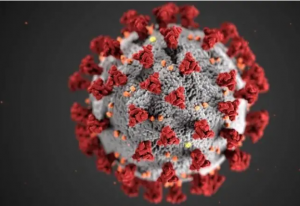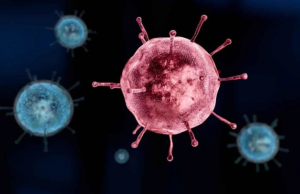The Lancent Covid Mission India Task Force has made this claim after reviewing the data so far that there is no evidence of severe illness in the third wave of children. The study included data from ten hospitals in Delhi-NCR, Tamil Nadu, Kerala, and Maharashtra.

Covid -19
In the context of the third wave, the report has been prepared in consultation with three paediatric doctors of AIIMS regarding the effect on children. It was told that most of the children do not show any symptoms of infection. Even if the symptoms are found, they are mild or moderate, which can be treated at home with medical advice.
So far, only 2600 children have had to be taken to the hospital in two waves. Children who had pre-existing diseases such as diabetes, cancer, anaemia, and malnutrition only worsened their condition. The risk of losing life to corona in normally healthy children is negligible.
Following symptoms will be there according to the report, but do not panic, follow the advice of the doctor.
According to the report, symptoms of fever, cold or diarrhoea such as abdominal pain, vomiting will be seen in most children. In such cases, if you follow the advice of doctors without panic, then the children will soon become healthy at home. In this too, the risk of infection in children under the age of 10 will be less than that of older people.

Covid-19 Third Wave
Health experts expressed concern over a sharp drop in routine immunization of children during the second wave of the corona. An estimated 20 lakh to 22 lakh children under the age of one year across the country are targeted for immunization every month under the national programmes, which translates into around 260 lakh children per year, an official said on Saturday. But the routine immunization schedule of children was greatly affected during the coronavirus pandemic.
Many health workers believe that during the pandemic, most parents missed out on routine vaccinations for their children against diseases such as DTP, pneumococcal, rotavirus and MMR. Most people were afraid to bring themselves and children to vaccination centres during this period for fear of catching corona infection, which could not lead to these essential vaccines.
We saw a decline of about 60 per cent in routine vaccination during the second wave of the corona, which is higher than last year’s decline rate, said Sumit Gupta, a paediatrician at Columbia Asia Hospital. The reason for this is, many people are afraid to visit hospitals during the Corona period and some people have missed vaccinations because they could not travel due to the lockdown.
“There may be a delay of a month or two in vaccination, but the mandatory vaccines should be given as per the schedule to generate the right amount of immunity in children at the right time”, He said.
